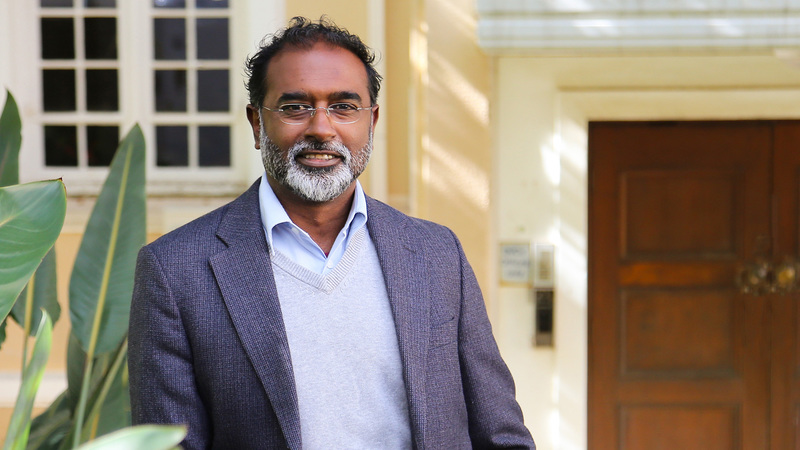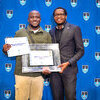UCT navigating US-related funding challenges
20 May 2025 | Professor Jeff Murugan
Dear colleagues and students
I write regarding recent – and ongoing – serious developments affecting research funding from US federal agencies, particularly the National Institutes of Health (NIH), to South Africa.
On 7 February 2025, the White House issued an Executive Order signalling the termination of aid and assistance to South Africa. As an immediate consequence, grants from the US Agency for International Development (USAID) were discontinued. This abrupt action highlighted the vulnerability of UCT’s US federally funded research.
UCT currently holds a portfolio of 178 US federal funded awards comprising both direct awards to UCT and subawards from collaborating institutions in the US. Since February, UCT has received stop-work orders for sub-awardee grants funded by the NIH which have halted 22 active projects (valued at R172 million). A further 93 multi-year projects have not received annual renewal notices (R265 million). Without intervention, UCT stands to lose over R437 million in research funding in the next 12 months, and R1.67 billion over the period 2025–2027 if all currently contracted, active US federal-funded awards are terminated. These funding cuts are significant and carry potentially long-term consequences not only for the researchers and research groups impacted, but also patients and participants, the broader university community, as well as medical research and healthcare across the country.
UCT’s portfolio of US federal grants supports a variety of research projects, providing salaries and project running costs for hundreds of staff as well as stipends for over a hundred postgraduate students and postdoctoral fellows. A large-scale termination of US federal funding would thus have very significant consequences, directly impacting staff, fellows, students and the university's finances.
We recognise that these developments are causing great concern to many within our community. In light of this, an intensified plan of action has been put in place.
What is UCT doing to respond to these developments?
We have taken immediate, structured action at multiple levels to assess, respond to, and mitigate the risks associated with the termination of US federal funding. In addition to informing and updating principal investigators, senior leadership, the executive and Council of the university on developments in this rapidly evolving space, this action includes:
- Comprehensive assessment and impact modelling: Through my office, we have conducted a full-scale assessment of the immediate, short- and long-term impacts of these funding suspensions. This has included analysis of projects already terminated due to the funding freeze; projects currently paused due to restricted access to funds; and projects still drawing funds but at imminent risk of termination.
- A dedicated task team that I chair was constituted in February 2025 and has been working since then with principal investigators, finance staff, Human Resources (HR) advisors and Faculty of Health Sciences leadership to identify affected research groups, staff, students and trial participants, and to develop tailored mitigation plans.
- National proposal for emergency support: In partnership with Universities South Africa (USAf) and together with other affected South African universities, UCT submitted a formal and comprehensive proposal to the National Treasury. This proposal is based on our detailed project-level data and is aimed at protecting critical research capacity, retaining staff and postgraduate fellows, and safeguarding national health priorities. The proposal is now under consideration by government stakeholders.
- Diversifying funding sources: UCT is working proactively to reduce reliance on US federal funding by identifying and securing alternative sources of support. We are intensifying engagement with EU funders, philanthropic foundations and bilateral partners, and prioritising efforts in areas most affected by the cuts. Efforts led by local and international partners, focused primarily on mitigating risks to HIV and TB research and development, are also under way.
- Supporting staff and students: We are undertaking institutional scenario planning, which includes:
- An expedited redeployment process to match affected staff with suitable internal vacancies;
- Consultation with unions and employee groups to ensure transparent communication and procedural fairness;
- Exploring opportunities for central support for soft-funded researchers by re-prioritising internal funding;
- Providing access to confidential counselling and support services via our Employee Assistance Programme (EAP) to help staff navigate work-related and personal challenges during this period of change. Details are available on the HR website.
- Principal Investigator-led mitigation: Many principal investigators have made significant efforts to minimise the impact on staff and students by reassigning affected team members to other projects with secured funding, wherever feasible. These proactive internal reallocations have helped prevent immediate layoffs in many cases.
In every crisis, there is opportunity; we will approach this challenge with hope and determination, knowing that together, we will continue working tirelessly and adapt in these changing and uncertain times. The ability of UCT researchers to achieve excellence and create impactful research initiatives that positioned the university as the largest recipient of NIH funding outside of the USA will now be strategically redirected toward securing comparable support from alternative funders. UCT’s research enterprise, including our globally recognised capabilities in conducting clinical trials, is of national and international significance; and must be preserved through creative, adaptive interventions and partnerships.
We appreciate the continued understanding of the university community as we navigate this challenging period. The situation remains fluid, and we are on high alert for further developments. Updates will be shared as they become available.
In the meantime, we encourage you to consult our list of frequently answered questions (FAQs), which address many of the key concerns and provide guidance on the evolving situation.
- Access the FAQs for US Federal Funding cuts.
This document will be regularly updated, so please save the link for future reference. You can also access this and other official communications from the university executive on the UCT News page.
Sincerely
Professor Jeff Murugan
Acting Deputy Vice-Chancellor: Research and Internationalisation
Read previous communications:
 This work is licensed under a Creative Commons Attribution-NoDerivatives 4.0 International License.
This work is licensed under a Creative Commons Attribution-NoDerivatives 4.0 International License.
Please view the republishing articles page for more information.









